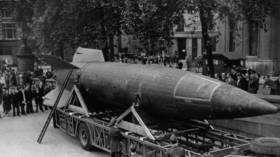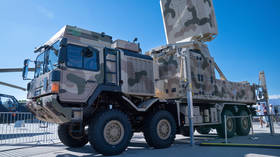Nazi-era ‘wonder weapon’ comparison lands top German official in trouble

Critics of the German government, who want Berlin to supply battle tanks to Ukraine, might be suffering from a Nazi-era “wonder weapon” syndrome, Chancellor Olaf Scholz’s chief of staff has stated, sparking a barrage of criticism from fellow politicians.
“Sometimes I am tempted to call it the ‘V-2 syndrome’, that we think there is this wonder weapon that will make things go away,” Wolfgang Schmidt said earlier this week.
He was referring to the V-2 rocket developed by the Nazis during the Second World War and dubbed the “vengeance weapon.” It was used in strikes against London, Antwerp and Liege that resulted in the deaths of thousands of civilians, according to some estimates.
Schmidt told panel discussion in Berlin on Thursday that now, German Leopard 2 battle tanks are seen in a similar light, which is nothing but a delusion.
His words provoked an angry reaction from the Christian Democratic Union (CDU) – the largest opposition party in Germany. “What’s actually going on in this man’s head?” the party’s chief Friedrich Merz wondered, referring to Schmidt. He also called on Chancellor Scholz to “make it clear” that the government would not just turn a blind eye to such “nonsense.”
The CDU defense policy spokesman, MP and retired colonel Roderich Kiesewetter, called Schmidt’s statements a demonstration of “horrifying ignorance.”
“Chancellor [Angela] Merkel would have dismissed the chancellor office head over such statements,” Kiesewetter said, adding that, if Scholz supports Schmidt on this issue, “we have to worry about Germany’s reputation in the EU and NATO.”
Head of the German parliament’s defense committee, Free Democrat Marie-Agnes Strack-Zimmermann, offered to give Schmidt “some weapons knowledge,” adding that he might then “quickly realize” that such a comparison is “not only completely out of place but also simply wrong.”
Kiev has repeatedly asked Berlin for heavy weapons, including battle tanks, since Russia launched its military operation in Ukraine in late February. Germany has so far been reluctant to send such armored vehicles to the country, while facing criticism at home over being supposedly too slow to deliver military aid to Kiev.













